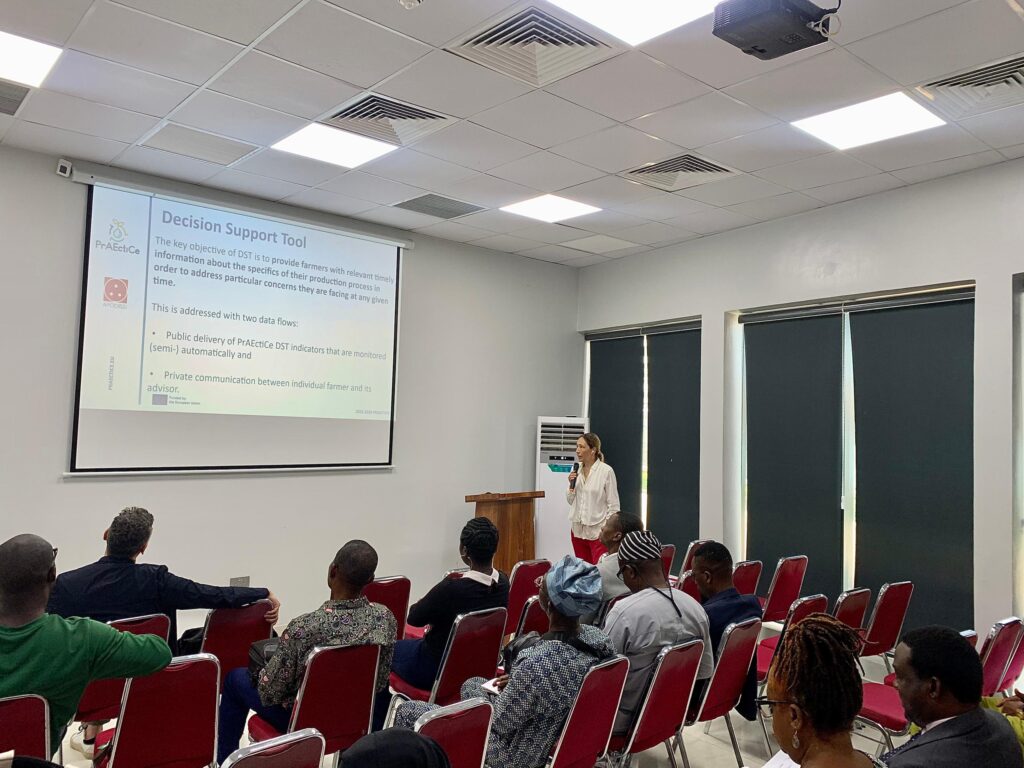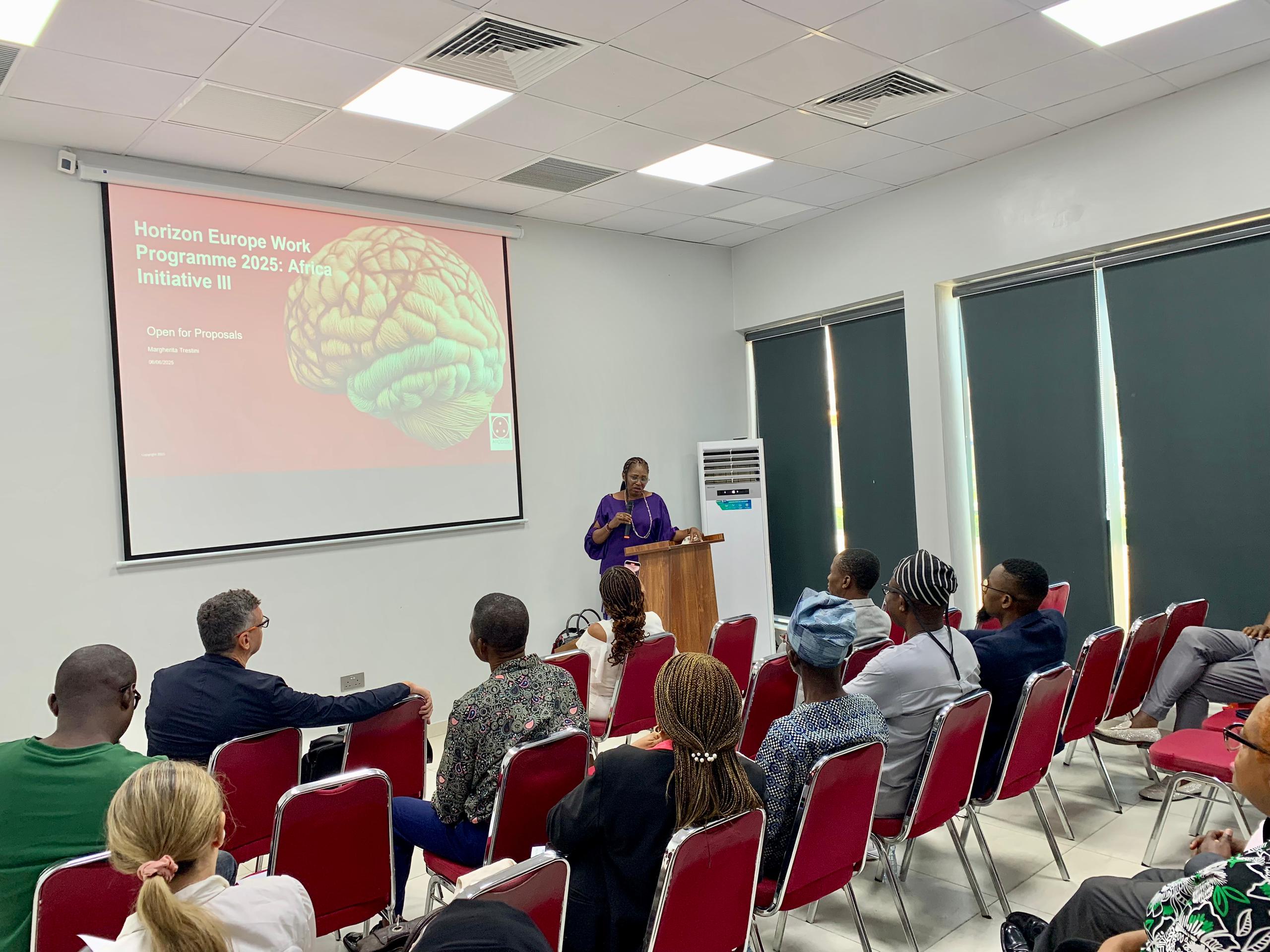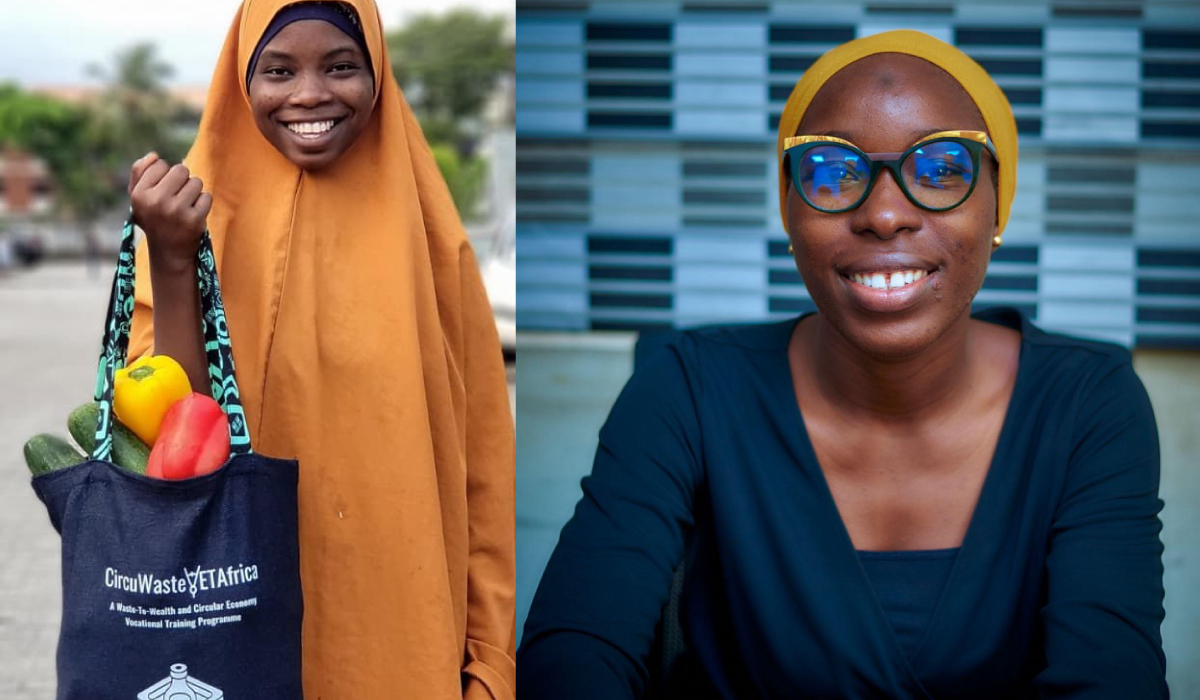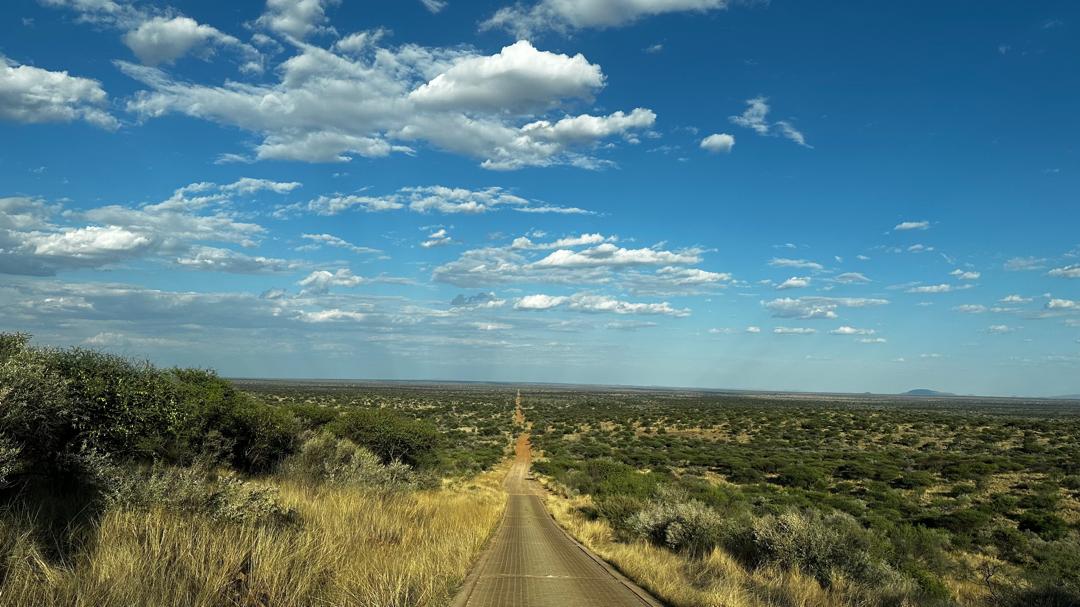EU-Africa Horizon Europe research projects are dedicated efforts aimed at developing solutions in critical areas for African societies: energy; food security; climate change; health. Research and Innovation projects are developed by African and European partners together, to bridge the gap between academic or laboratory research into products, services, or technologies that have real-world applications and economic value.
Apodissi, team, partner of PrAEctiCe project, leading the communication and dissemination, activities, organised a workshop in Lagos themed, Research to commercialisation of Horizon Europe projects. The workshop, held in Lagos, explored how PrAEctiCe and INICITIS-FOOD, EU-funded research projects, are making a real-world impact, from agroecological practices to food systems innovation in Africa.
It had academia in agriculture, economics, agro-tech startups, funding organisations, and representatives from the federal Ministry of Agriculture.
Director, Federal Ministry of Agriculture and Food Systems, Mrs Omolara Abimbola Oguntuyi, spoke on behalf of the Honourable Minister of Agriculture, Senator Abubakar Kyari, the Federal Ministry of Agriculture and Rural Development.
She highlighted that these projects align closely with the Ministry’s priorities, particularly in promoting sustainable agricultural practices among women.
Apodissi team presented PrAEctiCe which promotes agroecology practices in East Africa with a focus on circular water-energy nutrients. With collaborative effort of partners across Europe and Africa, the project has 3 living lab sites in Kenya, Uganda and Tanzania where integrated aquaculture agriculture practices are tested.

“Since their deployment, the living labs have been sites for capacity building, knowledge exchange among farmers, research activities, and most importantly, they demonstrated economically viable approaches for sustainable food production in Africa.” Blessing Sorinola, the Communication specialist for the project, stated.
“The project has installed an IoT based monitoring system at all three living labs. These systems provide real-time data monitoring and analysis of key parameters such as water quality, soil conditions, and crop health, which serve as the basis for the PrAEctiCe decision support tool (DST) for farmers. The IoT data are integrated with quali-quantitative information provided by the farmers and satellite images. The DST embeds AI-supported data transformation for the purposes of combining data from different sources and strims into specified data products. The DST mobile application provides extension workers/advisers and farmers with relevant timely information about the specifics of their production process in order to address particular concerns they are facing at any given time. The PrAEctiCe decision support tool is under development in the form of three applications and is currently at TRL 7, aiming at TRL 8 by Q1 of 2026. Apodissi is discussing with its partners the commercialisation strategy in Nigeria by APODISSI, in collaboration with Maribor University, which developed the DST application and the technical partners, experts in IoT Water/Soil quality sensor systems, Aquagri IIM – International Irrigation Management, and AquaBiotech Limited. We will leverage our collaboration with three digital innovation hubs in Nigeria, DigiPlus Alliance, WiderNetFarms and F-TAIP, which Apodissi is mentoring, to introduce PrAEctiCe DST, as well as Cooperatives, associations of farmers, and chambers of commerce across the country.” Margherita Trestini stated during her presentation.
Dr Oyebola Olusegun, a senior lecturer at the Department of Aquaculture & Fisheries Management at the University of Ibadan, presented INCiTiS-FOOD project, highlighting how the project is addressing food security through its living labs in Ibadan, circular Agri-food technologies, cascade funding, co-creation activities, healthy food production, and biofertiliser production.
The project’s commercialised produce includes a simplified, low-energy pump aquaponic set up such as the waste water from fish tanks that is drained to the sump with a low-energy water pump that lifts the waste water to the plants’ grow beds of the aquaponic system, and solid waste, which accumulates Inside the blue digester tank collected as sludge for fertilizer production. zero-pump manual aquaponic Iteration attached to sawdust-bag yam/tuber crop production unit, and liquid fish wastewater for uptake by crop farmers from the stagnant Renewal fish production, amongst others.
Apodissi concluded the workshop with an information sharing session at the workshop on Horizon Europe Africa III Initiative, specifically for the under the Food, Bioeconomy, Natural Resources, Agriculture & Environment Cluster, which allowed participants to connect and discuss potential collaborations.


